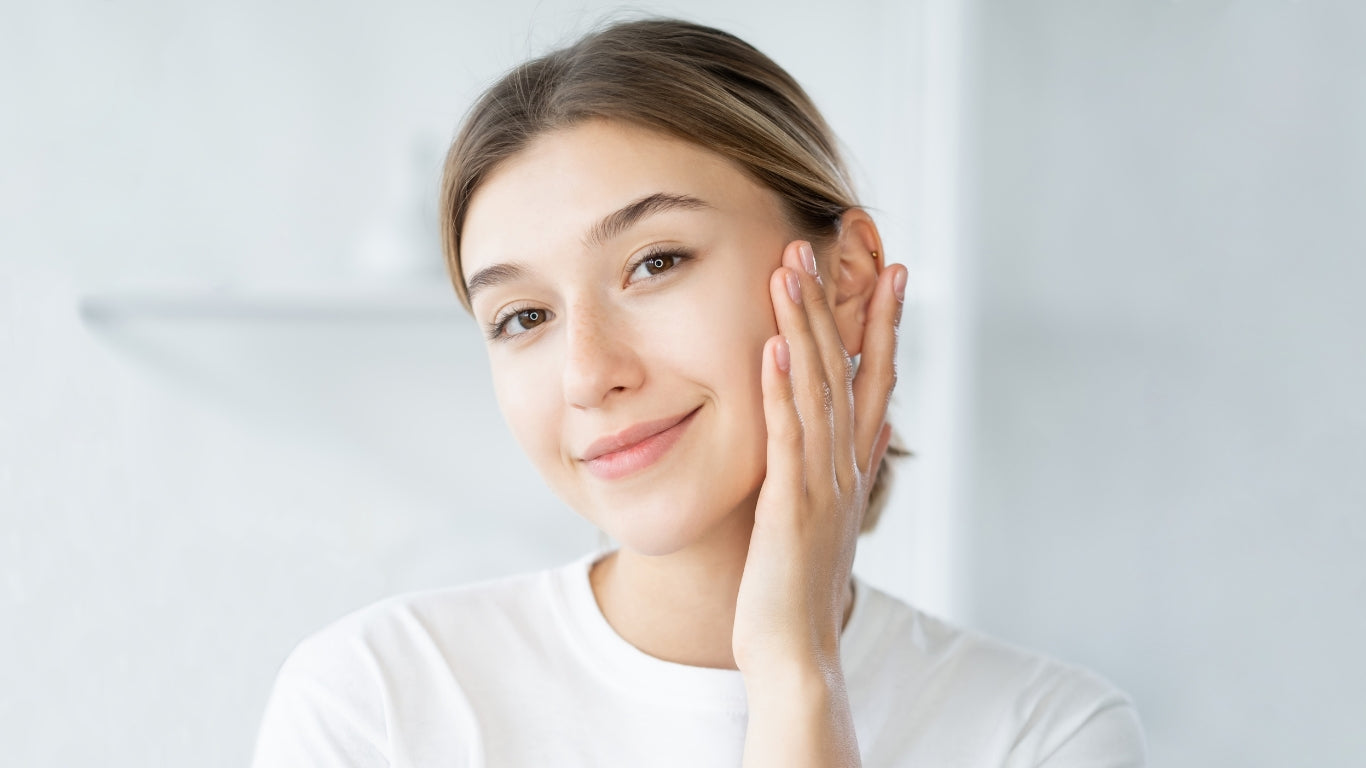Acne, the relentless adversary of clear skin, has plagued countless individuals throughout history. However, one particular type stands out as a recurring nemesis for many: hormonal acne. Unlike its temporary counterparts, hormonal acne is a persistent foe that often seems impossible to conquer. But fear not, for armed with knowledge and understanding, you can uncover the secrets of this unwelcome guest and learn how to keep it at bay.
In this blog, we delve into the depths of hormonal acne, unraveling its mysteries and empowering you to regain control of your skin health.
Understanding Hormonal Acne
Hormonal acne, as the name suggests, is intrinsically tied to our body's hormonal fluctuations. Most commonly affecting adolescents and adults in their 20s and 30s, this type of acne tends to strike around the jawline, chin, and cheeks. While anyone can experience hormonal acne, it is more prevalent in those with ovaries due to the influence of androgens (male hormones) on oil production.
The Role of Hormones
The key culprits responsible for hormonal acne are androgens, such as testosterone. These hormones stimulate the sebaceous glands to produce more oil (sebum), leading to clogged pores. When combined with dead skin cells and bacteria, these blocked pores create the ideal environment for acne formation.
Additionally, hormonal fluctuations during the menstrual cycle, pregnancy, and menopause can trigger acne flare-ups. Stress, a significant factor in hormonal imbalances, can exacerbate the situation by promoting hormonal fluctuations.
Identifying Hormonal Acne
Recognizing hormonal acne is crucial to adopting an effective treatment plan. Unlike other forms of acne, hormonal acne often presents as painful, deep-seated cysts or nodules beneath the skin's surface. These breakouts tend to occur cyclically, typically before or during menstruation, when hormonal shifts are most pronounced.
Treatment and Management
Skincare Routine
An effective skincare routine tailored to combat hormonal acne is essential. Look for products with ingredients like salicylic acid, benzoyl peroxide, or alpha hydroxy acids (AHAs) to help exfoliate the skin and unclog pores. Gentle, non-comedogenic cleansers and oil-free moisturisers can also aid in managing excess oil.
Hormonal Birth Control
For individuals with ovaries, oral contraceptives can be a game-changer in controlling hormonal acne. These pills help stabilize hormone levels, reducing the severity and frequency of breakouts.
Lifestyle Changes
Adopting a healthy lifestyle can contribute significantly to hormonal balance and skin health. Regular exercise, stress management techniques (e.g., meditation, yoga), and a balanced diet can all play crucial roles in minimising hormonal fluctuations.
Consult a Dermatologist
In more severe cases, consulting a dermatologist is crucial. They can recommend prescription medications like topical retinoids, antibiotics, or hormone-regulating treatments to address hormonal acne effectively.
Understanding hormonal acne empowers you to combat this formidable foe effectively. By recognising the role of hormones in acne formation, identifying its distinct characteristics, and adopting the right treatment and lifestyle adjustments, you can reclaim control over your skin health.
Remember, persistence and patience are key, as it may take time to find the perfect approach for your unique skin. With this knowledge in hand, embark on your journey to clearer and more confident skin.
May your battle against hormonal acne lead to a victorious, blemish-free complexion!





